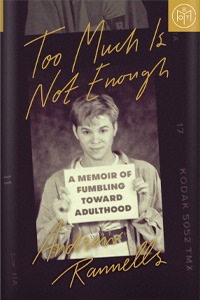

Nonfiction
Ghettoside
Debut
by Jill Leovy
Save $ with BOTM.
Quick take
Ghettoside reads like a novel. It's meticulously paced and the writing frequently stopped me cold.
Why I love it
David Sedaris
Jan. 2016
When offered this opportunity to recommend a book to The Book of the Month Club, I knew exactly which one to choose. What hit me the hardest in 2015 was Jill Leovy's Ghettoside. It's just the sort of thing I go for: an exhaustively researched non-fiction account of people I know nothing about. When those people are from India, as in Katherine Boo's Beyond The Beautiful Forevers one can sort of be forgiven, but in Ghettoside, as in Adrian Nicole LeBlanc's masterful Random Family, the strangers are Americans. They live in our towns, but in another part. The part we avoid, most likely.
This book focuses on the 77th Division of South Central Los Angeles, and follows a number of homicide detectives tasked with solving gang-related murders, the kind buried deep inside the newspaper, or perhaps not mentioned at all. In preparing this recommendation, I read a number of reviews. All of them were positive, and praised the author's reportorial skills. They put the book in context, mentioning the murders of Michael Brown and the birth of the Black Lives Matter movement. They made it sound important, which it is, and wise. What they left out, and what I so enjoyed about Ghettoside, is that it reads like a novel. It’s meticulously paced and the writing frequently stopped me cold.
What I most loved was how it challenged my expectations. Why had I thought that the detectives—most of them white—wouldn’t care that some gang member was murdered, or that the families of the victims, people to whom gun violence is an everyday event, would accept the deaths of their teenagers without anger or grief, as simply par for the course? Like all great books, this one leaves you thinking, not just "Who are they," but also "Who am I?"
Many of the reviews I read recommended the book as medicine, a disservice, I thought, as it's so enthralling. I feel bad using that word when these are real people, and they're suffering so horribly. It's to the author's credit that Ghettoside is so hard to put down, and that you wind up caring for everyone involved. When killers are caught, you don't feel victorious so much as sad. Another life wasted. Unlike a detective novel where you think, "Well, that happened," here there's the sense of the grinding wheel, one gang-related murder after another. On and on and on. It's relentless and brutal, and Jill Leovy's account of it is art.

















